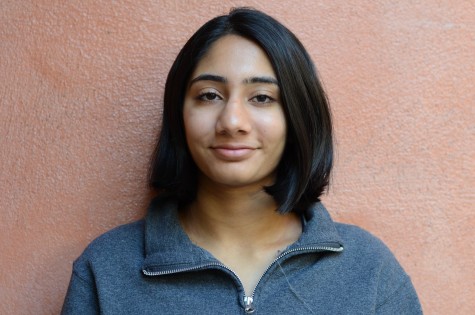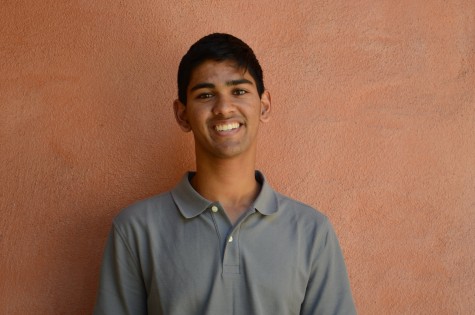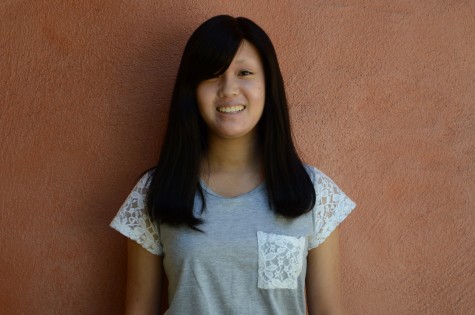WiSTEM hosts Diabetes Awareness Week
Diabetes was the seventh leading cause of death in the United States in 2010, responsible for or contributing to 234,051 deaths, according to the American Diabetes Association (ADA).
According to the Centers for Disease Control (CDC), up to 29.1 million Americans, 9.3% of the population, have diabetes. According to the ADA, 208,000 of the Americans who are affected by diabetes are under the age of 20.
Diabetes results from high glucose levels in the blood. Insulin in the pancreas usually breaks down the glucose from the food and turns it into energy, but diabetics do not make enough insulin or cannot use it as well as their bodies need to, causing sugar levels in their blood to rise.
Common symptoms include frequent urination, excessive thirst, hunger, weight loss, sudden changes in vision, sleepiness or tiredness, loss of senses in the hands and feet, and extremely dry skin. In Type 1, diabetics may also experience nausea, vomiting, or stomach pains.
There are three major types of diabetes: Type 1, which consists of about five percent of all diagnosed cases; Type 2, the most common and up to 90% to 95% of cases; and gestational diabetes, which affects between two and 10% of cases.
Type 1 diabetes occurs when the body does not produce the insulin hormone, which is required to metabolize glucose. When a person has Type 2 diabetes, the body rejects the insulin made by the body. Gestational diabetes only occurs during week 24 of the pregnancy stage. According to the ADA, this last form of diabetes is not always permanent and does not mean that you have had diabetes all along; by following doctors’ instructions on blood sugar, women can resolve their condition.
Because of the prominence of diabetes, WiSTEM decided to forgo their usual STEM week and host Diabetes Awareness Week. Each day this week there were special events to fundraise for the ADA.
“There are so many Americans affected by diabetes and the number is growing and increasing at an evergrowing rate. There are a lot of stereotypes associated with diabetes and that’s a reason we’re trying to fundraise to raise awareness of what we can do to stop diabetes and what actually causes diabetes,” WiSTEM Publicity Officer Adele Li (11) said. “There’s a lot of hype around the fact that if you eat more sugar, you get more diabetic, but that’s actually a myth. and there’s also a lot of things that you can do to prevent diabetes and that’s what this week is all about.”
Dr. Suhani Mody, a pediatrician at the Fremont Kaiser Pediatrics Center, supported Adele’s statement.
“You can’t get Type 1 from eating sugar, and you can’t really get Type 2 from eating sugar either,” she said. “But if you eat a lot of high sugar foods, you put on a lot of weight and then you become relatively insulin resistant. Obesity is what puts you at risk, it’s not just sugar. A lot of people say ‘Don’t eat sugar, you’ll get diabetes’ and that’s just not true.”
Sponsored by the ADA and Bay Club, along with Whole Foods and the Asian Heart Center, and others, WiSTEM had Bay Club instructors on hand for lunchtime fitness events, such as Bollywood dancing. In addition, the instructors held cooking demonstrations, information booths, and offered diabetes-friendly options everyday to student and faculty.
After giving out red hands for people to dedicate their week to someone with diabetes, WiSTEM put them up all over a bulletin board in Manzanita.
Throughout the week, the club sold red livestrong bracelets that say “stop diabetes” and HINT water.
On Monday, the club made a school meeting announcement and the ADA had a booth in Manzanita, answered questions and handed out flyers.
On Tuesday, the expected kickboxing fitness activity was cancelled.
On Wednesday, students and faculty were encouraged to wear red in support of diabetes. During long lunch, Bollywood and Hip Hop dancing activities were offered and drinks were sold by the club. A research scientist and educator also explored the subject of diabetes and living well in a talk.
On Thursday, nutrition was the focus with multiple cooking demos and booths with Harker chefs and teachers doing cooking demos. Whole Foods and the Asian Heart Center also attended the event, along with free food samples such as KIND bars, peanut-free granola bars, and Evolution ice cream from sponsors. Advisories could also take part in a fitness activity.
Today, the club will hold HINT water and KIND bar sales after school. Science teacher Mike Pistacchi will be holding a tai-chi session at lunch and a yoga and meditation class will be held after school. After receiving raffle tickets for every 10 minutes that they participated in fitness activities, students will have the chance to win a $100 gift card to ZombieRunner, a sports store in Palo Alto, in a raffle.
Q&A with Elizabeth Beamish (9):Q: Have you encountered anyone with diabetes? How has this person’s life been visibly affected by the disease?
A: I used to go to diabetes camp each year, so there are diabetics everywhere. I remember one year, I met this girl and we became pen pals because she lived in Las Vegas. She was really close to me and I think I lost her number or something, but it was really cool to meet another diabetic because [I] don’t see that everyday.
Q: What is a common stereotype surrounding a person with diabetes? Do you think that this stereotype is fair?
A: I know as a kid, a lot of them thought it was contagious. I guess being overweight [is another stereotype]. When you see diabetics, between type one and type two, type one you’ll see more people underweight, but Type 2, you’ll see overweight. [People] kind of mix it up.
Q: What are some of the difficulties in your daily life that are caused by diabetes?
A: Not being able to do things if my blood sugar level was low or high. I have to sit down, take a break, check my blood sugar level, and do the procedure I have to do to fix it.
Q: Do any members of your family have diabetes?
A: Most of my family has Type 2 diabetes, so I’m the only type one in my family.
Q: Is diabetes week something that is important to you? Why?
A: Yes! I appreciated this whole thing. I know it wasn’t just for me, but just letting it be known is just a big factor by itself, I’m really happy about the whole set up.
Q: What did you feel when you were first diagnosed? How has your outlook on diabetes changed over time?
A: Like I said in my speech, I didn’t know what diabetes was when I was first diagnosed, so I was hysterical. I was crying and I thought I was going to die; it was, I don’t want to say the worst experience, but it was definitely one of the top five worst experiences. Now that I have learned about what diabetes is, I think of it more as an advantage, so it’s good and bad.
This piece was originally published in the pages of The Winged Post on Nov. 21, 2014.

Kavya Ramakrishnan (12) is the managing editor of the Winged Post. This is her fourth year on staff, having previously held the positions of reporter and...

Aditya Varshney (12) is the opinion editor of Harker Aquila and the Winged Post. This is his second year on staff. During his junior year, he occupied...

Jackie Gao (10) is in her second year on staff is a reporter of the Winged Post. Her favorite part of journalism is the ability to interact with various...


















![“[Building nerf blasters] became this outlet of creativity for me that hasn't been matched by anything else. The process [of] making a build complete to your desire is such a painstakingly difficult process, but I've had to learn from [the skills needed from] soldering to proper painting. There's so many different options for everything, if you think about it, it exists. The best part is [that] if it doesn't exist, you can build it yourself," Ishaan Parate said.](https://harkeraquila.com/wp-content/uploads/2022/08/DSC_8149-900x604.jpg)




![“When I came into high school, I was ready to be a follower. But DECA was a game changer for me. It helped me overcome my fear of public speaking, and it's played such a major role in who I've become today. To be able to successfully lead a chapter of 150 students, an officer team and be one of the upperclassmen I once really admired is something I'm [really] proud of,” Anvitha Tummala ('21) said.](https://harkeraquila.com/wp-content/uploads/2021/07/Screen-Shot-2021-07-25-at-9.50.05-AM-900x594.png)







![“I think getting up in the morning and having a sense of purpose [is exciting]. I think without a certain amount of drive, life is kind of obsolete and mundane, and I think having that every single day is what makes each day unique and kind of makes life exciting,” Neymika Jain (12) said.](https://harkeraquila.com/wp-content/uploads/2017/06/Screen-Shot-2017-06-03-at-4.54.16-PM.png)








![“My slogan is ‘slow feet, don’t eat, and I’m hungry.’ You need to run fast to get where you are–you aren't going to get those championships if you aren't fast,” Angel Cervantes (12) said. “I want to do well in school on my tests and in track and win championships for my team. I live by that, [and] I can do that anywhere: in the classroom or on the field.”](https://harkeraquila.com/wp-content/uploads/2018/06/DSC5146-900x601.jpg)
![“[Volleyball has] taught me how to fall correctly, and another thing it taught is that you don’t have to be the best at something to be good at it. If you just hit the ball in a smart way, then it still scores points and you’re good at it. You could be a background player and still make a much bigger impact on the team than you would think,” Anya Gert (’20) said.](https://harkeraquila.com/wp-content/uploads/2020/06/AnnaGert_JinTuan_HoHPhotoEdited-600x900.jpeg)

![“I'm not nearly there yet, but [my confidence has] definitely been getting better since I was pretty shy and timid coming into Harker my freshman year. I know that there's a lot of people that are really confident in what they do, and I really admire them. Everyone's so driven and that has really pushed me to kind of try to find my own place in high school and be more confident,” Alyssa Huang (’20) said.](https://harkeraquila.com/wp-content/uploads/2020/06/AlyssaHuang_EmilyChen_HoHPhoto-900x749.jpeg)



